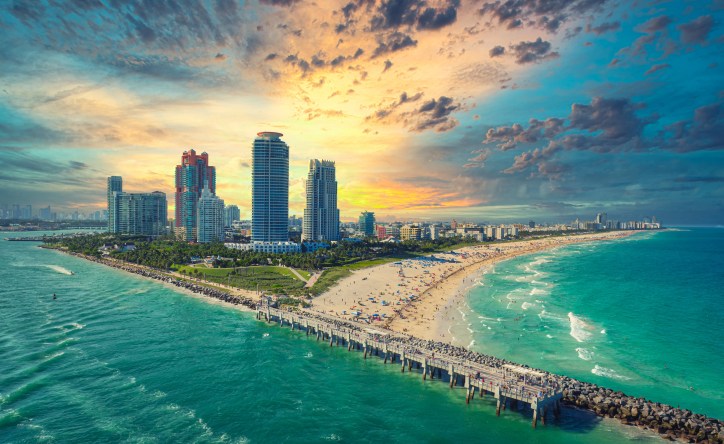Nearly 40% of all U.S. hurricanes making landfall between 1851 and 2022 struck Florida — the most of any American state. Given the Sunshine State’s vulnerability, proper building durability and hazard preparedness are essential. ICC FL BC Building-2023: Florida Building Code – Building – Eighth Edition – 2023 serves as the foundational standard for the design, construction, and inspection of commercial and multi-family buildings across the state of Florida.
How Do Hurricanes Form?
Hurricanes are essentially powerhouse weather events that suck heat from tropical waters to fuel their furious wind speeds. They form near the equator, where the water temperature is at least 80°F (26.5°C). When warm, moist air rises from the ocean surface, it forms an area of low pressure, which may just appear as the beginning of a tropical wave.
When this rising air cools and condenses, it forms clouds and thunderstorms. This releases heat that fuels the storm. The Earth’s rotation then causes the storm to spin, creating a cyclonic system. If wind speeds reach 74 mph (119 km/h), the storm is classified as a hurricane.
Importance of Hurricane‑Resistant Building Codes in Florida
Hurricanes commonly target Florida due to its strategic subtropical location. As such, assuring that buildings in Florida adhere to hurricane-resistant building codes is essential. Measures, such as enhanced roof attachment systems, impact-resistant windows and doors, and flood-resistant foundation designs, are paramount for the safety of Floridians. ICC FL BC Building‑2023 lays out requirements for hurricane resistant measures and more.
What Is the ICC FL BC Building‑2023?
The ICC FL BC Building‑2023 is the 2023 edition (Eighth Edition) of the Florida Building Code – Building, developed by the International Code Council (ICC).This edition integrates the 2021 International Building Code with state-specific amendments. It reflects Florida’s unique regulatory environment and its heightened emphasis on safety, energy efficiency, accessibility, and hurricane resilience.
The ICC FL BC Building‑2023is based on national model building codes and national consensus standards, in addition to Florida-specific provisions. The Florida Building Code incorporates all building construction related regulations for public and private buildings in the State of Florida other than those specifically exempted by Section 553.73, Florida Statutes.
Enforced statewide as of December 31, 2023, the code assures that new and existing structures meet stringent performance and safety criteria tailored to Florida’s climate, geography, and population needs.
Model Codes and Standards Incorporated in ICC FL BC Building‑2023
The model codes used for the Florida Building Code, 8th Edition (2023) include the following:
- The 2021 editions of the International Building Code
- The International Plumbing Code
- The International Mechanical Code
- The International Fuel Gas Code
- The International Residential Code
- The International Existing Building Code
- The International Energy Conservation Code
- The National Electrical Code, 2020 edition
- Substantive criteria from ASHRAE Standard 90.1-2019
- State and local codes adopted and incorporated into the code include the Florida Building Code, Accessibility
- Special hurricane protection standards for the High-Velocity Hurricane Zone (
- Chapter 27 of the Florida Building Code, Building, adopts the National Electrical Code, NFPA 70, by reference.
How Is the ICC FL BC Building‑2023 Used?
The Florida Building Code – Building governs design, construction, and safety regulations for non-residential buildings (e.g., commercial, industrial, multi-family). It is distinct from the Florida Building Code – Residential, which covers single- and multi-family dwellings.
These codes are often referenced by professionals such as architects, engineers, building officials, and contractors to ensure compliance with state-specific requirement.
Where to Find ICC FL BC Building‑2023
By improving building resiliency and ensuring that new construction is built to withstand Florida’s challenging climate, building codes have helped save lives, protect property, and safeguard Floridians’ way of life. As such, proper code enforcement is vital, and the ICC FL BC Building‑2023 sets the cornerstone for construction standards across Florida’s commercial and multi-family-built environment.
ICC FL BC Building-2023: Florida Building Code – Building – Eighth Edition – 2023 is available on the ANSI Webstore.
